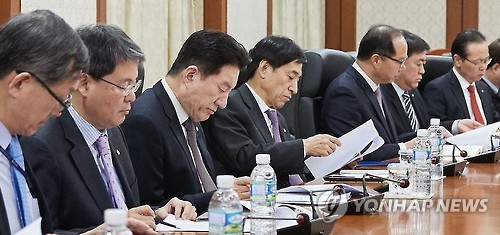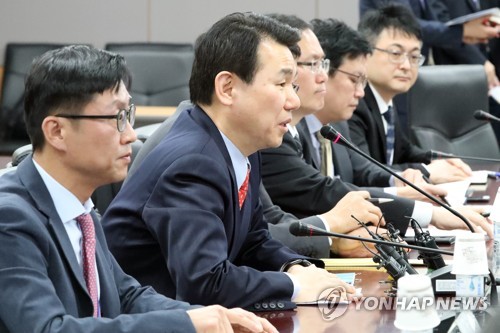South Korea's central bank said Thursday it won't respond "mechanically" to the latest U.S. interest rate increase amid eased anxiety about the pace of the Fed's monetary tightening.
"Even though the U.S. raised its policy rate, the Bank of Korea (BOK) won't follow suit mechanically," Jang Byung-wha, the BOK's senior deputy governor, told reporters. "The U.S. benchmark rate is an important reference index but our rate should be considered from the domestic perspective."

Hours earlier, the U.S. jacked up its benchmark rate by 25 basis points to 0.75 to 1 percent.
Jang pointed out that the decision was in line with market expectations, with concerns about a speedy rate hike subdued to some extent.
"Some market participants were nervous about the possibility of the Fed raising the rate fast, but (Fed Chair Janet) Yellen's remarks were not that hawkish," he said.In fact, a sense of relief was palpable among local policymakers.
Yields on South Korea's foreign exchange stabilization bonds and the credit default swaps (CDS) premium have dropped following the Fed's decision overnight, according to the BOK.
Financial regulators, however, emphasized that there will be no let-up in their readiness to deal with market risks.
"(The authorities) will closely monitor the impact of interest rate hikes to the financial industry and take tailored measures if needed," Jeong Eun-bo, vice chairman of the Financial Services Commission (FSC), said at a joint session with the Financial Supervisory Service.He announced a set of policy measures to help local firms facing temporary financial troubles from higher interest rates sell corporate bonds.

Under the program intended mainly to support small and medium-sized companies in need, state policy lenders plan to underwrite their new bonds, with around 600 billion won (US$530) of funds earmarked.
In addition, the government will pour 1.3 trillion won to repackage their existing bonds into a primary collateralized debt obligation (P-CBO) facility. (Yonhap)

